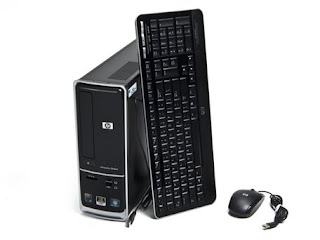Analysts claim analysis In Motion can eventually fail if its loss-making ways that continue

"As nice because the Apple iPhone is, it poses a true challenge to its users," explained Jim Balsillie in November 2007, when Apple's touchscreen device had been on sale solely some months. "Try typing an online key on a touchscreen on an Apple iPhone, that is a true challenge. you can't see what you sort."
But for Balsillie, then co-chief government beside Mike Lazaridis of analysis In Motion, maker of the BlackBerry smartphone, the important challenge was to his job. 5 years to the day when the primary iPhones went on sale, Balsillie and Lazaridis are ejected from the corporate, and analysts and brokers seriously question its ability to avoid bankruptcy – which could occur quickly.
RIM's board, led by former operations chief Thorsten Heins since January, is currently besieged to contemplate "unpalatable" moves like following Finland's Nokia by forming an alliance with Microsoft, or selling its network business that carries the info traffic for its 78m subscribers worldwide, Reuters reported.
"If RIM continues to be run because it is, we have a tendency to believe that the corporate can eventually fail," Nomura Equity analysis said. "We don't expect RIM to successfully drive a turnaround of its financials, even with the launch of [its new software] BB10 next year," the brokerage said during a note to purchasers.
It wasn't alone: a minimum of ten brokerages cut their value targets on the stock, some by the maximum amount as five hundredth, whereas the stock dropped by 2 hundredth in serious selling at its gap following woeful quarterly money results on Thursday night. RIM announced that it shipped simply seven.8m handsets, and created an operating loss of $643m – its biggest-ever – on quarterly revenues of $2.81bn, its smallest since November 2008, when Google's Android handsets had hardly begun to travel on sale. A year ago, it had an operating profit of $897m on revenues of $4.9bn.
"RIM and Nokia each missed the trends, they were late to know what was happening," says Francisco Jeronimo, smartphones analyst for the analysis company IDC. "Because they each had sturdy market positions, they created identical mistake of believing that they were doing the proper factor."
In could 2008, Lazaridis was asked what he saw because the most fun trend within the sector, "The most fun mobile trend is full Qwerty keyboards. I'm sorry, it very is. i am not creating this up," he replied. but at Vodafone's urging, RIM was already acting on the BlackBerry Storm – a touchscreen device, however that created a user-repellent clicking when used – that it unveiled that autumn. The reaction was therefore negative that RIM avoided touchscreens for years.
But having engineered its name on secure email and handsets with tiny built-in keyboards, RIM had additional to lose by changing than did Nokia, says Jeronimo – which, allied to poor business execution, has led to its downfall. against this Nokia realised its issues in mid-2010, sacked its chief government and brought in Stephen Elop, an outsider who is remodeling the corporate and focusing it on the smartphone sector, with Microsoft's facilitate.
Of the 78m subscribers worldwide using RIM's services, just below 0.5 are in business, in line with estimates by the analysis company Informa. however where Lazaridis once reportedly said "no company goes to permit individuals to bring their own phone", the increase of "bring your own device", or BYOD, has accelerated with the increase of the iPhone within the US.
The rise of Android phones within the US and elsewhere has additionally outpaced it: against the 78m, there have to date been 400m Android devices activated since 2008, and slightly fewer Apple iPhone and iPads, the majority of that are still in use. That puts RIM during a} very distant third place within the race to be the "platform" on that developers write the apps that are creating smartphones compelling.
That may mean that a final act is within the offing, in line with the brokers Cannacord Genuity. "We believe RIM can ought to sell the corporate," it said during a note to purchasers.
But no one is kind of positive who would need to shop for the corporate. Baird Equity analysis, below the heading "Marching off the cliff", said it believed there was no possible buyer.
Despite the pressure on the board to seek out some style of tieup with Microsoft, there's no obvious reason why the software big would need to get it – rather than looking ahead to it to approach an finish, at that purpose business purchasers would most likely abandon it and maybe migrate to Microsoft's and Nokia's product. Microsoft is committed to pumping billions into Nokia already – and won't savour the concept of doing identical with RIM for its proprietary encryption systems.
With that in mind, analysts at Citi Investment analysis and Jefferies slashed their value targets on the stock to $5.00 for RIM's US-listed shares, a fall of forty fifth from Thursday's shut. "We believe fundamentals still deteriorate and RIM may run out of money and want to lift capital among 2 years implying that as time rolls forward, if we have a tendency to are correct, the worth of RIM continues to travel lower," the Citi analysts said.
"We expect additional write-offs and impairments to RIM assets and that we question if RIM's new BB10 product can even matter because it is also too very little too late," the analysts said, adding that they expected the company's smartphone sales growth to be but 1/2 the business average in 2012.
BlackBerry ten, thought of to be RIM's make-or-break product, was slated to be launched within the initial quarter and therefore the delay has already contributed to a four-hundredth drop within the company's stock value to date this year.








